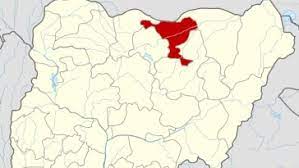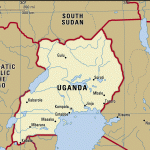Gambia Supports Tourism Sector To Curtail COVID-19 Impact
African News, Latest Headlines, News Around Africa, West Africa Saturday, June 18th, 2022
(AFRICAN EXAMINER) – The Gambian government has braced up to the challenge of minimizing the impact of COVID-19 pandemic on the hotel and tourism sector of its economy.
The government has taken decisive and concrete steps in reviving the sector by providing relief support to the industry, especially to formal and informal sector workers and businesses.
To accomplish this, the government created a $1.85 million fund that benefited 6,000 informal sector workers through a one-off payment scheme of $50 for each worker.
In Gambia, the spread of Covid-19 was quickly brought under control, courtesy of the public health interventions supported by the African Development Fund (ADF), the concessional funding arm of the African Development Bank (AfDB) Group.
Since 2020, the Multi-Country Covid-19 Crisis Response Programme has strengthened the health system in Gambia. The $14.1 million in funding received for the project was split into two loans of $7.05 million each, one from the ADF, and the other from the Fragile States Facility.
Notably, the programme supported tourism, a strategic sector in the Gambian economy, which was hit hard by the pandemic. The Bank’s crisis response programme ensured that the tax burden on the hospitality industry was minimized, by defraying the cost of dues owed to the municipalities of the Greater Banjul area.
In addition, significant health infrastructure has been built to contain possible waves of coronavirus infections and deal with potential communicable disease threats that could cause outbreaks in this West African country.
The Gambian authorities used the funding to build eight COVID-19 treatment centers and a National Infectious Diseases Center. The private sector, through the Gambian Chamber of Commerce and Industry, provided further tents to be used as treatment centers. These tents were acquired as part of another Bank-funded project to create incubation centers for small and medium enterprises and promote trade fairs.
In August 2020, there was a spike in cases and the Gambia was recording 2,000 cases per week. The public health interventions instituted by the Ministry of Health and drastic containment measures (supported by the Bank’s programmatic intervention) led to the drastic reduction of weekly cases to almost zero daily cases by November 2020,” said the Project Completion Report published by the AfDB on 7 June in Abidjan.
According to the report, daily cases have generally remained subdued, with less than 300 cases recorded per week, adding that only one case was recorded in the week of 20 June 2021, which was the mid-term review period of the crisis response programme set up by the Bank.
In a similar vein, social programmes focused on protecting the livelihoods of vulnerable groups and enabled the government to undertake the most expansive safety net and food distribution program yet, targeting vulnerable households, many of them in rural and peri-urban settlements.
More than 200,000 households benefited from the distribution of essential food items such as cooking oil, rice and sugar. The programme also ensured that 60 percent of the contracts for the supply of essential food items went to local businesses, some of them women-led Small and Medium Enterprises (SMEs). Moreover, a Bank-funded institutional support project had earlier provided training for local SMEs to participate in such public procurement opportunities.
Related Posts
Short URL: https://www.africanexaminer.com/?p=78013






















